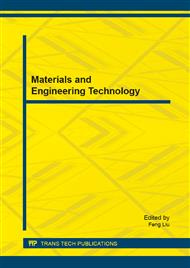p.717
p.721
p.727
p.732
p.737
p.744
p.750
p.756
p.767
Accuracy Improvement of GPS Positioning Based on GA-Aided Particle Filter
Abstract:
Aiming at the weight degeneracy phenomena in particle filter algorithm, a resampling method improving the diversity based on GA-aided particle filter was presented. Taking the advantage of genetic algorithm ( GA ) in selection ,crossover and inheritance to make up for the shortcoming of resampling. Genetic operation on particles in real number domain is adapted to reduce the complex of the genetic algorithm. And the evolutionary idea of genetic algorithm was combined with particle filter, by using selection, and mutation to improve the weight degeneracy and diversity of particle filter. This GA-aided particle filter was applied in the established GPS system nonlinear dynamic state space model. The experimental results based on the collected real GPS data is compared with the tradition particle filter, and compared with the effective number of particles and particle distribution. The experimental results indicated that the GA-aided particle filter can increase the number of particle, and effectively solve the particle degradation phenomena, the estimation accuracy of GA-aided particle filter is better than that of particle filter (PF).
Info:
Periodical:
Pages:
737-743
Citation:
Online since:
January 2015
Authors:
Price:
Сopyright:
© 2015 Trans Tech Publications Ltd. All Rights Reserved
Share:
Citation:


